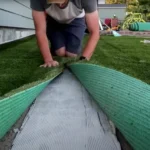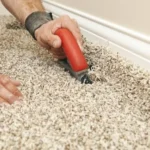How To Choose Rubber Flooring For Basements?
Selecting the right flooring for your basement can be daunting, especially with the myriad choices available. However, one option stands out for its versatility, durability, and comfort: rubber flooring. But why is rubber flooring such a good choice for basements? Let’s dive in and explore.
Call Us 24/7
Understanding Rubber Flooring
What is rubber flooring in Dubai?
Rubber flooring Dubai is a durable and resilient option made from natural or synthetic rubber. It’s known for its excellent shock absorption, water resistance, and long-lasting performance.
Types of rubber flooring
Rubber flooring comes in various forms, including tiles, mats, and rolls. Each type offers unique benefits and can be chosen based on specific needs and preferences.
Benefits of Rubber Flooring for Basements

Durability and longevity
Rubber flooring is incredibly durable and can withstand heavy foot traffic and the wear and tear typical in basements.
Water resistance
Basements are prone to moisture and flooding, making water-resistant flooring essential. Rubber flooring’s water resistance helps prevent mould and mildew growth.
Comfort and insulation
Rubber flooring provides a cushioned surface, making it comfortable to walk on. It also offers good insulation, helping to maintain a stable temperature in the basement.
Types of Rubber Flooring

Rubber flooring tiles
Tiles are easy to install and replace, making them popular for DIY projects. They come in various colours and designs, allowing for customization.
Rubber mats
Mats are portable and versatile, ideal for areas that require temporary or movable flooring solutions, such as home gyms or play areas.
Rolled rubber flooring
Rolled rubber flooring is seamless and provides a smooth surface, perfect for covering large areas. It’s commonly used in commercial settings but is also suitable for residential basements.
- The carpet’s color and pattern enhance the room’s decor and aesthetic.
- Considering maintenance needs and the carpet’s durability in high-traffic zones is vital.
Key Features to Consider

Thickness and density
Thicker and denser rubber flooring offers better shock absorption and durability. Consider the intended use of the space when choosing the thickness.
Surface texture
Different textures provide varying levels of grip and comfort. A textured surface can offer better slip resistance, essential for wet areas.
Slip resistance
Safety is crucial, especially in a basement. Ensure the rubber flooring you choose is slip-resistant to prevent accidents.
Installation Process
Preparation
Before installing rubber flooring, ensure the basement floor is clean, dry, and level. Proper preparation is critical to a successful installation.
DIY vs. professional installation
While some rubber flooring options are suitable for DIY installation, hiring a professional can ensure a flawless finish, particularly for complex projects.
Maintenance and Cleaning
Regular maintenance tips
Rubber flooring is low maintenance. Regular sweeping and occasional mopping with a mild detergent will keep it looking new.
Deep cleaning methods
For deeper cleaning, use a specialized rubber floor cleaner. Avoid harsh chemicals that can damage the flooring.
Choosing the Right Rubber Flooring for Your Basement

Assessing your needs
Consider how you’ll use the basement. For a home gym, thicker mats may be ideal, while tiles might be better for a playroom.
Budget considerations
Rubber flooring comes in a range of prices. Determine your budget and find options that offer the best value within your range.
Style and design options
Rubber flooring is available in numerous colours and patterns. Choose a style that complements your basement’s décor.
Rubber Flooring for Specific Uses
Home gyms
Rubber flooring is ideal for home gyms due to its shock-absorbing properties, protecting your equipment and the floor.
Playrooms
The cushioning effect of rubber flooring makes it a safe choice for children’s play areas, reducing the risk of injuries.
Laundry rooms
Rubber flooring’s water resistance makes it perfect for laundry rooms, where spills and moisture occur daily.
Environmental Impact
Recycled rubber options
Opting for recycled rubber flooring is an eco-friendly choice. It reduces waste and conserves natural resources.
Sustainability considerations
Rubber flooring is long-lasting, reducing the need for frequent replacements and contributing to sustainability.
- 01. Clean the Floor
- 02. Install Carpet Tack Strips
- 03. Leave a Gap Between the Tack Strips and the Wall
- 04. Leave the Old Tack Strips in Place
- 05. Attach the Padding Between the Tack Strips
- 06. Use Quality Carpet Padding
- 07. Buy Extra Carpeting
- 08. Consider Carpet Roll Widths With the Layout
- 09.Rent Carpet Installation Tools
- 10. Use a Carpet Stretcher and Knee Kicker
Comparing Rubber Flooring to Other Options

Rubber vs. carpet
While carpet provides comfort, it can be hard to maintain in a damp basement. Rubber flooring is more durable and water-resistant.
Rubber vs. vinyl
Vinyl flooring is another popular choice but can be slippery when wet. Rubber flooring offers better slip resistance.
Rubber vs. Concrete
Concrete is durable but hard and cold. Rubber flooring provides a softer, more comfortable surface.
Common Myths About Rubber Flooring
Rubber flooring is only for gyms.
Rubber flooring is versatile and suitable for various applications beyond gyms, including basements, playrooms, and more.
Rubber flooring has a strong odour.
Modern rubber flooring is designed to minimize odours. Any initial smell typically dissipates quickly.
Rubber flooring is too expensive.
While the initial cost might be higher, the long-term durability and low maintenance of rubber flooring offer excellent value.
Cost of Rubber Flooring
Price ranges
Rubber flooring prices vary based on type and quality. Tiles and mats are generally more affordable than rolled rubber.
Factors influencing cost
Thickness, design, and brand can all affect the price of rubber flooring.
Cost vs. value
Consider the long-term benefits and durability of rubber flooring, which can offset the initial investment.
Where to Buy Rubber Flooring
Local retailers
Check local home improvement stores for a variety of rubber flooring options.
Online stores
Online retailers offer a various range of products, often at competitive prices. Read reviews to ensure quality.
Tips for choosing a reliable supplier
Look for suppliers with good reviews and a solid return policy. Compare prices and product options.
Conclusion
Rubber flooring is an excellent basement choice due to its durability, water resistance, and comfort. Whether setting up a home gym or playroom or needing a resilient flooring solution, rubber flooring meets various needs. Evaluate your specific requirements, consider the environmental impact, and choose a style that meets your budget and design preferences.
FAQs
Is rubber flooring suitable for all basements?
Rubber flooring is versatile and can be used in various basement settings, from home gyms to playrooms.
How long does rubber flooring last?
Properly maintained rubber flooring can last many years, often up to 20 years or more.
Can rubber flooring be installed over concrete?
Rubber flooring can be easily installed over concrete, providing a comfortable insulating layer.




